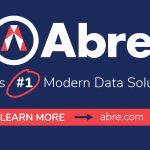March 31, 2021
The Institute for Ethical AI in Education has released an AI report and framework outlining how schools can safely procure AI based resources which will have a positive impact on teaching and learning
Emerging technologies such as artificial intelligence (AI) can be the shrouded in myths, misinformation and can often feel quite frightening to educators. In the UK last year, for example, an algorithm was blamed for tens of thousands of young people getting the wrong grades in their GCSEs and A-levels, after traditional examinations were cancelled because of the Covid pandemic. The resulting negative headlines are not difficult to imagine.
In 2018, the Institute for Ethical AI in Education (IEAIED) was created by Professor Rose Luckin, the director of EDUCATE Ventures and professor of learner centred design at UCL Knowledge Lab; Sir Anthony Seldon, the former vice-chancellor of the University of Buckingham; and Priya Lakhani, the founder and CEO of Century Tech. The co-founders sought to remove some of the fear, suspicion and trepidation surrounding the use of AI, while also encouraging its safe and ethical use in educational settings.
The culmination of their work was published last week in the form of a report and framework outlining the benefits, safe use and procurement of AI-based EdTech. It aims to help educators make informed choices, and to maximise the potential of AI in the teaching and learning process. With the Covid school lockdowns and the associated rise in technology use, this AI report could not be more timely.
The guidance draws on insights gathered from a series of roundtables organised by the IEAIED last year, which included the views of young people, and from the Global Summit on the Ethics of AI in Education, which took place in November 2020.
The AI report acknowledges the huge benefits of AI to education professionals, including cutting teacher workload and assessing students, and is mindful that many educators still lack knowledge and understanding about its potential and what AI products they should purchase to enhance teaching and learning. By improving this knowledge and raising expectations, the report aims to drive more ethical development of AI-based EdTech by innovators and entrepreneurs.
Experts consulted in creating the report
Who is the IEAIED?
In 2018, the Institute for Ethical AI in Education (IEAIED) was created by Professor Rose Luckin, the director of EDUCATE Ventures and professor of learner centred design at UCL Knowledge Lab; Sir Anthony Seldon, the former vice-chancellor of the University of Buckingham; and Priya Lakhani, the founder and CEO of Century Tech.
RECOMMENDED: https://global-edtech.com/category/report/
The framework sets out several principles and the actions educational settings and institutions should take to fulfil them. They include:
- Using AI to achieve well-defined educational goals based on strong societal, educational or scientific evidence that it is for the benefit of learners: the evidence should lead the technology.
- Using AI to assess and recognise a broad range of learners’ aptitudes beyond those recognised in formal assessments and exams. For example, metacognition, which is a vital component of being able to learn.
- Using AI to increase the capacity of educational institutions whilst respecting human relationships, so that learners’ social and emotional needs are not sacrificed for efficiency.
- Promoting equity between different groups of learners and improving social mobility.
- Using AI to increase the control learners have over their learning and development by, for example, enabling them to see how well they are progressing across a range of metrics, including non-traditional measures, such as motivation and self-regulation.
- Striking a balance between privacy and the legitimate use of data for achieving well-defined and desirable educational goals, so that learners’ rights to privacy and anonymity are protected.
- Understanding that humans are ultimately responsible for educational outcomes and should therefore have an appropriate level of oversight of how AI systems operate. Teachers should feel confident to ask suppliers to explain clearly what the AI is doing, how and why.
- Ensuring that learners and educators have a reasonable understanding of artificial intelligence and its implications and should expect resources to assist with this from the suppliers of the AI they are purchasing.
- The design of AI resources by people who understand the impacts of the technology.
The IEAIED also wants to encourage educators to consider using AI to enhance the social skills and well-being of learners, and in a way that assists effective teaching and learning without undermining the role of educators in the process.
For more information about the IEAIED go to: https://www.buckingham.ac.uk/research-the-institute-for-ethical-ai-in-education/














